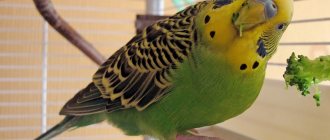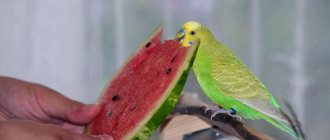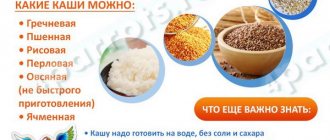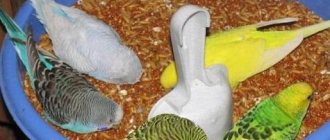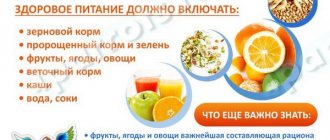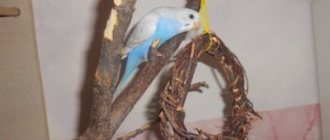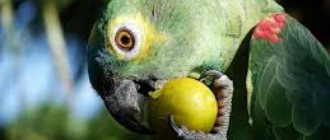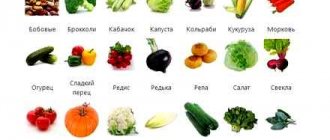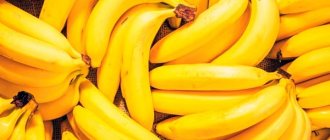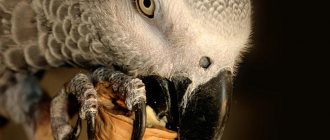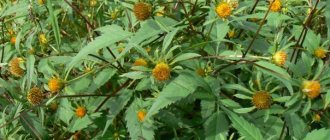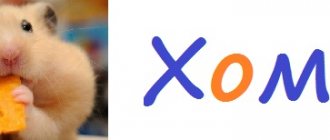Budgerigars are the leaders in the number of households. When a pet appears in a home, it brings a lot of joy and pleasure to its owners. And as a sign of gratitude, the owner surrounds the parrot with care, attention and affection, pampering the pet with all kinds of delicacies. Pays considerable attention to nutrition, which, in addition to everything else, plays an important role in the life of a bird.
The pet is not picky about food. In addition to grain mixtures, his menu should be diluted with fruits and vegetables. Fruits and roots contain a huge amount of essential vitamins and minerals that are involved in the development, growth and health of birds.
Fruit menu
Introduce fresh, dried and dried fruits into your parrot's menu. But keep in mind that it is better to make the preparations yourself. When eaten, the bird will not only receive pleasure, but also the necessary content of vitamins and minerals that are necessary daily for the good functioning of the body. Each fruit contains a different amount of useful components. When feeding fruit treats, follow the norm.
Many owners ask various questions: can budgies eat tangerines or kiwis, and what fruits to feed and which not. Let's begin to clarify these issues.
Here are the fruits you can give your budgies:
- Bananas are very nutritious, rich in calcium, magnesium and potassium. Content of fiber, all kinds of useful acids. A couple of pieces a day will be enough to maintain and saturate the body with essential vitamins;
- Apple is a vitamin cocktail, enzymes that are good for the digestive tract. Contains tannins, plant fibers and organic acids. The norm need not be limited;
- pomegranate is very necessary, its substances ensure the functioning of the cardiovascular system. A few grains a day, but introduce them gradually, starting with a minimum amount. The norm per day is no more than 1/6 part;
- kiwi – strengthens the parrot’s immunity. The fruits are leaders in vitamin C content. Protects the body from viruses;
- pears - for digestion, which is promoted by pectin. The composition contains carbohydrates, iron, phosphorus. Peel the skin first. Give in any quantity;
- orange – contains fiber, essential oils, carbohydrates. Well protects the body from viral and infectious diseases. A small piece a day. Also add other citrus fruits to the menu. Dilute lemon juice with water;
- grapes are rich in microelements and vitamins. Give 2 - 3 berries without skin, there is no need to remove the seeds. Cleanses the body and removes toxins;
- pineapple - the composition has a positive effect on muscle tissue and strengthens blood vessels. Has general strengthening properties. Destroys proteins, helps digest and absorb protein foods.
- apricot is the owner of sugar, inulin, starch, provitamin A, iron, acid. Supports the immune system, prevents cardiovascular diseases;
Persimmon, mango, papaya, avocado - these exotic fruits are not recommended to be given to your pet.
Important! Add a variety of edible berries, fresh or frozen, to your diet. You can prepare it yourself in the summer. The treat must be fresh and well washed, otherwise it will lead to serious illness and death.
All fruits should be peeled and cut into pieces. Remove the seeds, which are dangerous because they contain hydrocyanic acid. It is recommended to feed with vitamins from your garden, so-called natural products. Store-bought fruits often contain an abundance of nitrates and other substances that are detrimental to the health of the parrot.
Berries for the parrot
Parrots can eat not only fruits - they love to feast on berries. Make sure you always have fresh, dried or frozen fruits in stock:
- Rowan,
- currant,
- irga,
- rose hip,
- honeysuckle,
- raspberries,
- gooseberry,
- chokeberry.
At the beginning of summer comes the season of fragrant strawberries. It contains vitamin C and antioxidants, so its benefits are undeniable. The answer to the question whether a parrot can eat strawberries is only positive if the amount of nitrates does not exceed the norm.
The gifts of the swamp are tasty and healthy: cranberries, lingonberries, blueberries, cloudberries. Birds often peck at the berries, getting to the seeds - their favorite food.
Attention! Small parrots may choke on round berries while trying to swallow them whole. The treat must be crushed to protect the pet from death.
Frozen berries retain all the vitamins, so this method of preparation is best suited. You should not pour berries into the feeder straight from the freezer; let them melt, otherwise the bird will catch a cold. You can make compote without sugar from dry berries. Fruit and berry seeds are not garbage, they are needed for training and strengthening the beak. Birds have fun by chewing shells with their beaks.
Vegetable menu
Fresh vegetables are an integral part of a budgie's diet. Give what you need every day.
Let us explain what vegetables can be given to a budgie:
- cabbage - white cabbage, broccoli, Peking cabbage and other types of this family. Everything contains a lot of all kinds of useful components. It is beneficial for the stomach when consumed, stimulates metabolism and easily cleanses the body of waste and toxins;
- carrots – the root vegetable contains carotene, lysine, ascorbic and pantothenic acid. Promotes pet growth and good vision. One piece a day is enough;
- pumpkin - in addition to its aesthetic qualities, has many useful components. The pulp is saturated with all kinds of vitamins, magnesium, potassium, iron. Removes toxins and excess cholesterol;
- cucumber – a huge content of vitamin E. A rich community of minerals. Helps in the absorption of food and normalize metabolism;
- beets - occupies a leading position in the presence of useful components. It has antioxidants and many other useful minerals necessary for the life of a budgie. Provides a wide range of benefits to improve the functioning of the body.
- Tomato or tomato has obvious benefits for your pet; it is a powerful antioxidant. Is a source for the health of the parrot. Normalizes metabolism, prevents the appearance of fungal diseases.
About the basic nutrition of birds
This is a high-quality grain mixture based on oats, millet and canary seed. Its additional components are sesame, flax and hemp seeds, meadow grass, and sunflower. Today, pet stores offer a wide range of food for budgies. Which one to choose is a personal matter of the owner and the tastes of his feathered friend. But the owner must monitor the quality of the main food. When buying a package, be sure to look at the expiration date, and if you open the package and find dirt, mold, or other nasty stuff there, throw it in the trash or return it to the store.
When choosing food for your parrot, give preference to those products that are sold in sealed plastic packaging. If the food is simply poured into a cardboard box, it can spoil much faster. Such packaging does not prevent the penetration of insects and pests into the feed. As for its quantity, two teaspoons per day is enough for one budgie.
What not to give to a budgie
The budgie is quite inquisitive and often shows interest in everything you eat.
Important! You cannot feed your pet from the table. Human food can harm birds.
There is no need to add various nuts and seeds to your diet. They are fatty and often difficult to digest, leading to indigestion. When feeding your pet fruits and vegetables, follow the norm. The main thing is to know which of them can worsen your health. There are individual intolerances of the body that cause disorders, pay attention to this. Immediately exclude such bait from your pet’s menu. There are also vegetables that contain a high content of essential oils, corned beef and other non-useful substances. They are harmful to the parrot and lead to poisoning and death:
- raw potatoes;
- radish;
- green onion or tuber;
- garlic;
- celery;
- radish;
- eggplant.
There are also greens that should not be given:
- parsley;
- dill;
- cilantro.
But there is no need to completely limit greens. Feed with young leaves from fruit trees. Sprouted leaves of wheat or oats. Lettuce leaves, clover.
If you have doubts about giving or not giving, then give preference to what you know. Experimenting with food is not recommended.
What is the nutritional value of raisins for parrots?
As mentioned above, raisins provide your parrot with a wide range of nutrients and benefits. Here are some of the benefits listed below.
Vitamin B
Raisins are rich in all types of vitamin B and will therefore provide your parrot with all the benefits you would expect from a vitamin B complex. Benefits such as: cell health, red blood cell growth and repair, and many more.
Potassium
Raisins are also very rich in potassium, which has a huge number of benefits. Such as: reduction in mortality, reduction in blood pressure and reduction in the incidence of strokes. All of these factors increase with age, so if you have an older parrot, you may want to consider adding raisins.
Sugar
Sugar is something that can be harmful to us humans. However, it is a valuable source of energy and should not be excluded from your parrot's diet.
Raisins are a great source of energy, however, because they are so high in sugar, they should only be given to your parrot a couple of times a week, along with nuts and seeds.
How to train a parrot to eat vegetables and fruits
Sometimes you encounter that a parrot does not show any interest in additional food. But you shouldn’t despair; with some effort and some tricks, you can overcome the problem. Try to arouse your pet's interest in additional food. You can arrange it in the form of a garland, stringing assorted vitamins in order. Grate and serve as a puree. Eat in front of him and hand feed him. You show all sorts of tricks and tricks. Be patient, and the result will appear soon. Keep in mind that perhaps the parrot will not eat everything, but will choose something that suits its taste preferences.
What to look for when choosing vegetables and fruits
When choosing an assortment of vitamins for your budgerigar, focus on the appearance of the fruits and root vegetables. They should not raise suspicions about quality. Choose fruits and vegetables that are ripe, fresh, and free from mold and rot. Don’t try to experiment with nutrition, just give what you know. If possible, feed only seasonal fruits.
The main diet of a budgerigar is a grain mixture, but a vegetable and fruit menu is also important in the pet’s diet. To maintain health, vitamins and minerals play an important and major role. When eating a variety of food, the parrot’s body receives all kinds of components that saturate the body with all the necessary nutrients.
Follow the rules and regulations for feeding your pet. In return, you get a healthy, active and good-humored parrot that will delight you for many years of life. If you liked the article or have something to add, leave your comments and also join our VKontakte group.
What fruits can parrots eat in small quantities?
Unfortunately, not all fruits are well accepted by the body of birds. Some may negatively affect digestion. Treats that birds can eat in strictly limited quantities include watermelons and melons. These fruits can be given only in season and in small portions. Moreover, preference should be given to ripe fruits. Unripe fruits can cause digestive problems.
What fruits can be given to a parrot in small portions? Prunes, raisins, dates and dried apricots. Moreover, before serving, they must be washed to remove dirt and steamed well. Since dried fruits are very high in calories, your parrot should not be given more than a few fruits per day. If you wish, you can mix several types of fruits and serve them as a vitamin salad.
When talking about what fruits a parrot can eat, we need to remember apricots, plums and peaches. Most birds like these fruits because they are soft and juicy. In the wild, birds often use them to replenish their body's moisture reserves if they cannot find clean water to drink. You should not give your parrot whole fruits, as he will most likely try to taste the pit. And it contains hydrocyanic acid, which is very harmful to birds.
